"My childhood was elegant homes, tree-lined streets, the milkman, building backyard forts, droning airplanes, blue skies, picket fences, green grass, cherry trees. Middle America as it's supposed to be. But on the cherry tree, there's this pitch oozing out—some black, some yellow—and millions of red ants crawling all over it. I discovered that if one looks a little closer at this beautiful world, there are always red ants underneath." —David Lynch
I've been thinking a lot about the red ants lately.
It’s a bit of an ecosystem, isn’t it? The sky, the grass, the beautiful trees, the ants and the mysterious festering ooze. Is that what Lynch meant? I’ve been watching a lot of his films recently, and the darkness present in the mundane is certainly part of his artistic exploration. Lynch was uniquely talented at creating absolutely terrifying villains that seemed to have a direct connection to a real, genuine, ancient evil. Something truly dark.
There’s a quality to that darkness that feels eerily similar to the experience of spinning out in your own head—the voice of hate that exists in all of us, fueled by fear, insecurity, anxiety, and the emotional baggage we all carry. What better way to empower that voice than by disguising it, by dismissing the seriousness of our problems? Our stupid little problems are just as real as anything else. And in some cases, when you dig down into the root—when you dig up the little red ants and the ooze—you realize that they’re not so disconnected from the real shit. The poverty, the stress, the death, the destruction of everything. The dark undercurrent that we are all consciously and unconsciously aware of.
Like we’re all at a big party, and hardly anybody is having any fun, and we all regret coming, and at the end, the host is going to burn the house down.
So, we distract ourselves. We find small things to latch onto, characters, internet strangers, little self-contained spirals to get lost in—anything to ignore the smell of gasoline in the air.
How often, would you say, have you mourned something that wasn’t real?
A made-up character in a book? Film? TV show? What about a real person you’ve never even spoken to? Maybe even someone you don’t actually like but whose presence in your life has become ambient, like a streetlamp you never noticed until it burned out.
It might seem stranger if it weren’t so common. As we’ve become increasingly atomized, living our personal pan pizza-style existences, there’s just less real to grab onto. And in that vacuum, even fictional relationships—or ones that barely qualify as relationships—take on an outsized importance. The red ants were always there. The internet just allowed us to zoom in.
I’m frequently annoyed by the voice in my head that refuses to let me think my problems are real. I have worked with poor people for roughly five years now—they are my clients, the people I represent in court or, more recently, assist with their wide array of legal problems. Their lives are far more precarious than mine. Some live on the street, others barely scrape by. This reality creates an intense guilt in my brain about even thinking about my personal problems, especially since so many of them are so stupid and pointless. And yet, the experience of those problems is, of course, very real. Enough to spiral me out, cost me sleep, give me headaches. The causes? Often preventable. Often laughably so.
I am an addict, and I have been for a long time. I had an unhealthy relationship with drugs in law school. I developed an unhealthy relationship with alcohol as a public defender. And over the last five years, as I’ve grown a following online, I have developed an unhealthy relationship with the internet.
I like to pretend like I’ve gone insane. Lean into a Lady Ophelia thing that’s extra funny because I’m a thirty-three year old man with a mustache. That’s not really the case, though I do sometimes enjoy acting unhinged—maybe just to get some kind of reaction. To see what happens. But it’s not just for the sake of chaos. It’s more insidious than that.
The internet has created a new voice inside my head, a cynical one that wasn’t there before. And almost every day for the last five years I have fed that voice, given into some of my worst impulses, and often been rewarded in the form of either engagement or, in some cases, actual fucking money.
And there’s the rub, isn’t it? I turn the camera on, I post, and no matter what, it’s a performance. Even if it’s real, even if it’s raw, it’s still being framed in a way that invites an audience. And I hate it. Because a lot of the time (though, admittedly, not all of the time), I am feeding something for the purpose of the reaction, not an innate desire to create. And that is the nastiest shit.
Worse still, it works. That’s the most soul-blackening part. Watching myself get rewarded for it—financially, algorithmically, socially—only deepens the sickness. There’s a twisted feedback loop to it, a perpetual trade-off where I am simultaneously aware of what I’m doing and too wired into the system to fully stop. The ants are me. The black ooze is me. I am both the factory farm and the farmer, but I’m also the meat. And the meat is rotten. Because it’s no longer fueled by love or creation—it’s running on cynicism, anxiety, and avarice. Jealousy, fear, loneliness. The whole ugly cocktail. It is a sickness. A hamster wheel for my addiction, and I keep running because the wheel keeps spinning.
The internet has fundamentally broken my brain. It has warped my relationships with other people, splintered them into something darker, something transactional. It has exposed me, over and over again, to the worst impulses of human interaction—until at some point they started to feel inevitable.
Partially, it’s from the people who I do not care if they live or die (and I probably prefer the latter). Those, of course, are right-wing reactionaries and literal self-described Nazis, some of whom have doxxed me, harassed me, sent me death threats, sent me pictures of the outside of my own home. But those guys barely register to me at this point. They are not human. They are a structural hazard, like potholes or wet floors in gas station bathrooms.
The ones that get to me are, unfortunately, just random anonymous people who are, for lack of a better description, mean. And I’ve noticed something—maybe you have too: everyone is getting meaner. The other day, I asked my 50,000-something followers on Bluesky (the Twitter-esque replacement) if they thought this was the case. There was some consensus, some speculation. The usual suspects: hard times, a decaying world, a perpetual loss of empathy. Some newer ones: COVID reinfections frying our brains. Sure, why not?
And then, the voice in my head: Is this what you’re spending energy thinking about? A stranger was mean to you online and hurt your feelings? Get a grip, man. Log off! There are real problems in the world.
And of course there are. But I don’t think it’s unique to be caught up in bullshit. Most of us can clock other people’s bullshit from a mile away. It’s easy when you’re not in the middle of it, when you’re not spiraling out, when you haven’t lost control of the wheel. I know my problems are stupid. I know there are bigger problems in the world. I also know that stepping on a nail still hurts.
Maybe it is as simple as recognizing that people’s lives are bad and getting worse. The world is bleak and scary. The future is in doubt. Patience is running out. Love for strangers is vanishing. People are having homicidal fantasies because their underpaid-virtual-slave-grocery-store-shopper got the wrong kind of Oreos.
But I am not unique in my spiraling. Reading this, you may even think of the ways you yourself ruminate over things entirely stupid. A friend of mine recently recorded a meeting with his boss at his high-paying tech job (stupid and useless to society, said lovingly). After watching the video with friends and family, he realized there was literally nothing wrong. He was in his own head, consumed by invented anxieties.
Some of my most successful friends—famous creatives, filmmakers, actors, writers—are absolutely sick inside their own minds. They ruminate in ways that would be unfathomable to anyone who only knew them by their work or parasocially. The biggest YouTuber in the world once called me on the phone to ask if I could please watch his latest video because I had accidentally created discourse about his work in the past. Half a billion people watch this guy’s videos every month. But he was stuck on me.
That is fucking insane.
I think this is all just the red ants under the cherry tree. You can ignore them for a while, admire the picket fences, the blue skies, the carefully curated image of normalcy. But the closer you look, the more you realize the ants are everywhere. And worse, they’re inside you now. They burrowed in through your screen, nested somewhere deep, rewired your brain in ways you can’t fully trace but absolutely feel.
I look at my life before the internet was so much a part of it, and I don’t know if I was happier, exactly, but I do know I was less aware of myself. Less aware of how I might be perceived, less reflexive about performing. And that loss, that permanent self-consciousness, feels like the real cost of all this. The rot under the tree. The ooze that never stops seeping.
But I also think—maybe, possibly—that awareness is not the worst thing in the world. Knowing that something has its hooks in you means you can try to loosen its grip. I don’t think I can go back to the way things were, and I don’t think I’d even want to. But I do think I can learn to turn the volume down on the cynicism, to resist the impulse to feed the wrong beast. To make something just because I want to, without worrying about who is watching.
The internet did not invent paranoia, or loneliness, or spirals of self-doubt. It just accelerated them, magnified them, made them inescapable. The answer, I think, is to look at the red ants and not let them take over your whole field of vision. Or, at the very least, to remember that you are not the only person who sees them.
I do sometimes wonder if I even want to get better. Do I actually want to break out of this loop, or do I just like the familiarity of it? My life is a series of slow-burning fires that I am always putting out. Every weekend, I rush out of my apartment, leaving behind a mess that I'll deal with later—the same refrain I follow for the rest of my life. If I keep doing the same things over and over, isn’t this just the outcome I actually want?
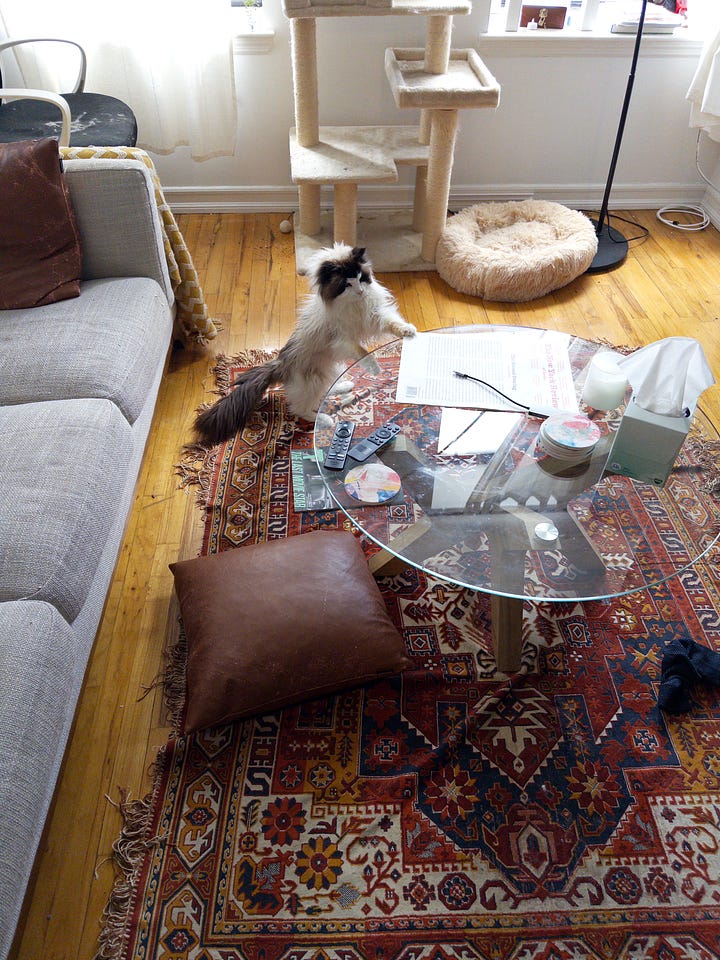
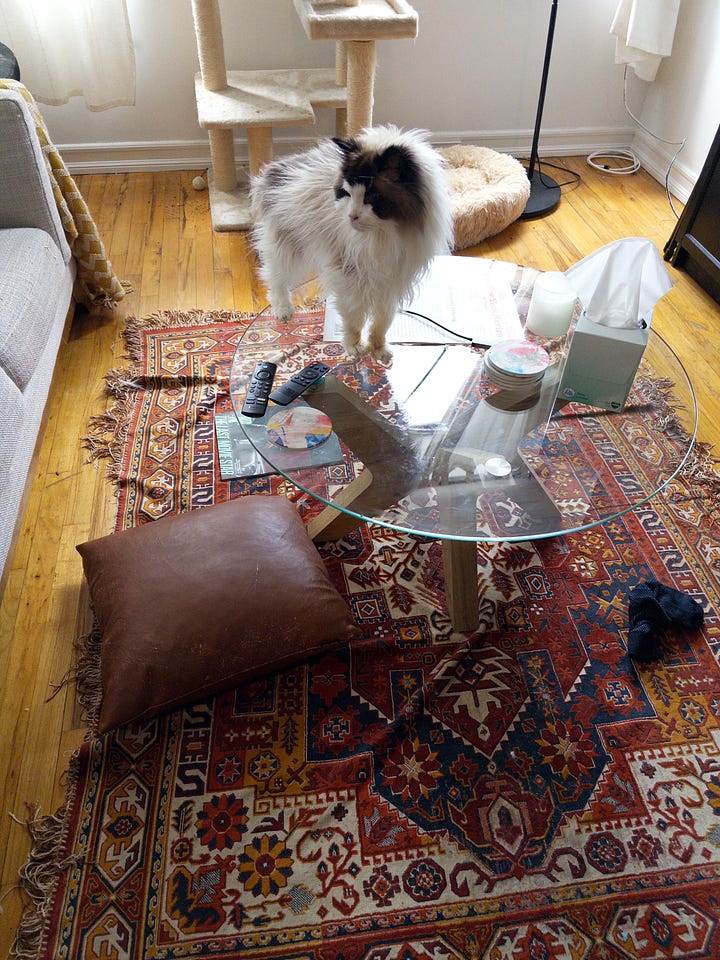
Perpetual chaos makes my life interesting. It makes me interesting. That’s what I tell myself. This, of course, is a classic blunder. It doesn’t do either of those things. It just makes your life more stressful and you more annoying.
So how do we get better? First, we have to want to. And that might be the hardest part. No one wants to admit their bad habits serve them in some way, that their misery is at least partially self-sustaining. The real challenge is forcing yourself to actually break patterns, whatever that looks like for you.
It’s easy to feel stuck in your ways, to believe your brain has ossified, hardened into something unchangeable. But it hasn’t. It’s elastic. Malleable. It is beautiful, wet, and full of stunning wedges and wrinkles. It can change.
The trick isn’t just noticing the red ants—it’s realizing you don’t have to live with them crawling all over you forever. If enough of us look up, we’ll remember there was a whole world outside of us all along.





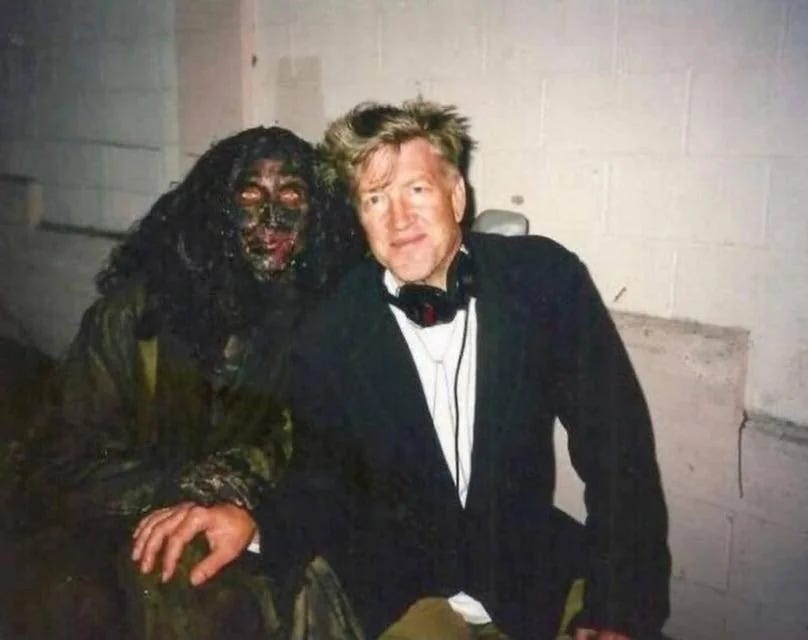
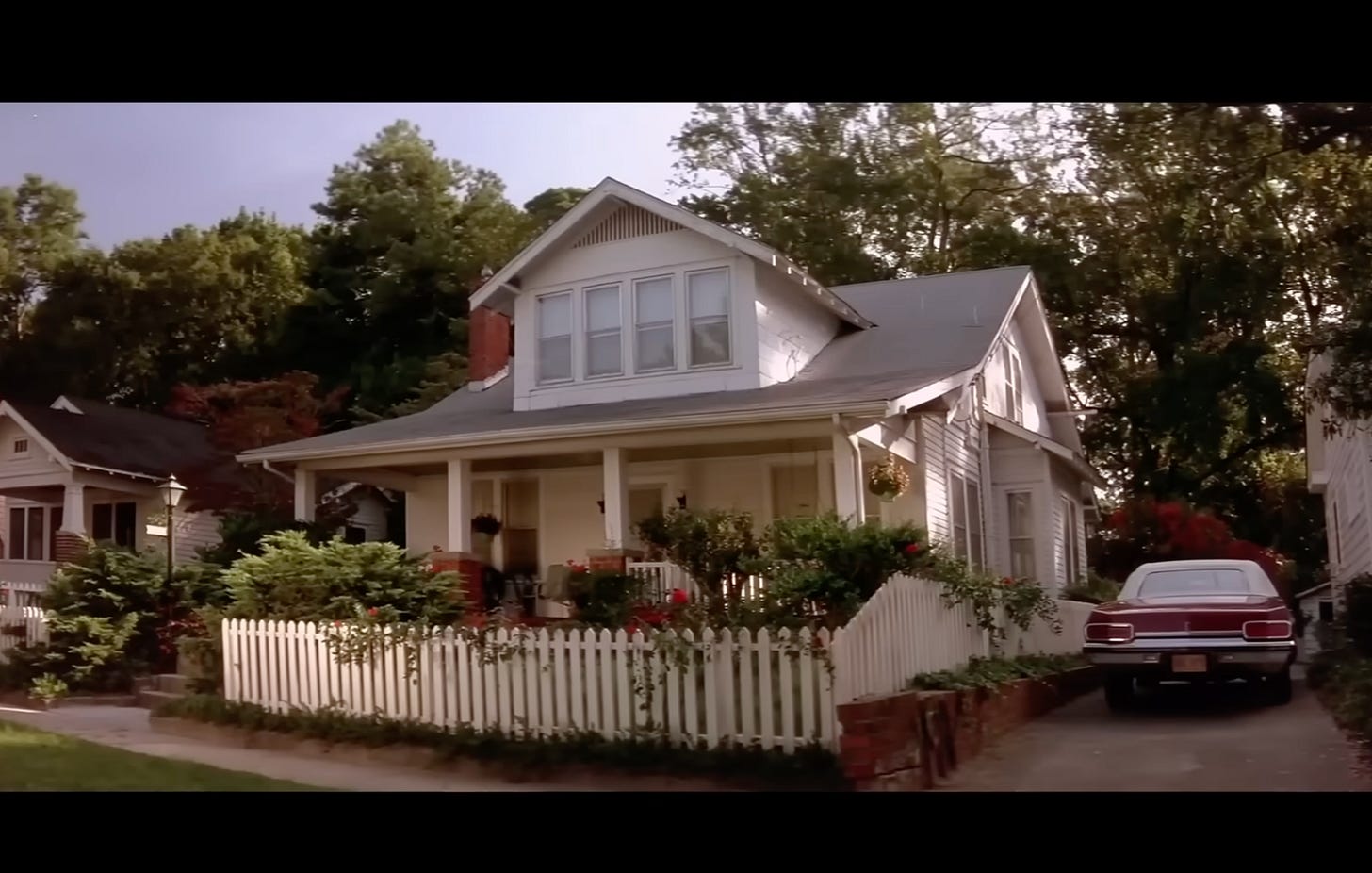

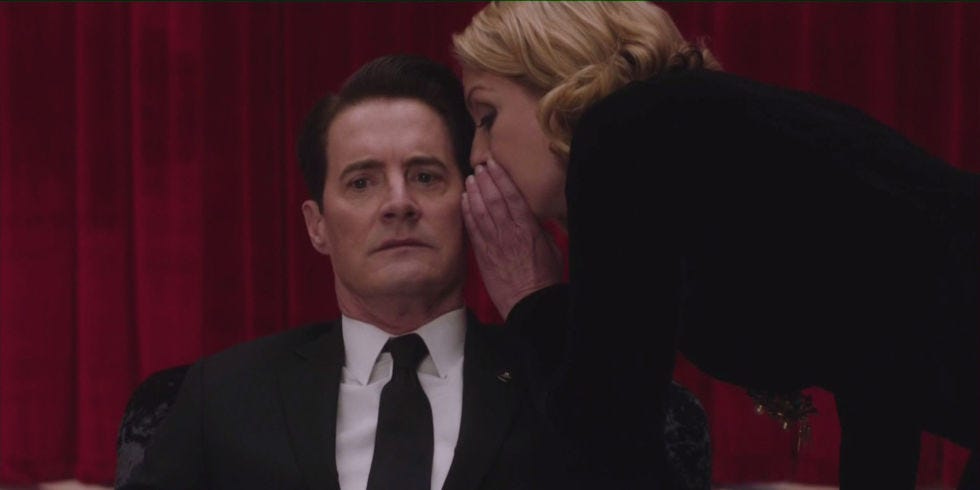
The most beautiful souls I know struggle with existentialism and it’s so incredibly painful (and isolating). . . and I honestly believe it is due to generations of trauma that get passed down until one person decides to actually feel it all. Here’s to being soft and noticing the ants but also everything else — the wind and the trees and the grass. We are all just little kids who got hurt badly by the people who were supposed to protect us, and now we are trying to make sense of that.
I actually think about this often but haven't really had the words to fully express it,
"If enough of us look up, we’ll remember there was a whole world outside of us all along."
When I was in college, I did this workshop out in Northern Cali and it was so isolated and I was so removed from the internet for the first time in so long.
There was one day we spent swimming and eating and drinking on a giant boulder in this beautiful hidden lake in the middle of the redwoods, and I remember staring up at the stars and wondering how people (like fascists, racists, etc.) can be so hateful and evil - have they never experienced such simple joy? Why focus on all this evil bullshit when the life could be... this? If we all just took care of one another and didn't care so much about made-up bullshit.
It's almost embarrassing to think about/to wish it could be so simple, but... yeah. I do feel like the internet is making me insane - the unfathomable enormity of useless hate feels inescapable. I have other provoked thoughts but don't want to continue to write my own essay in your comments. Thank you for writing this.